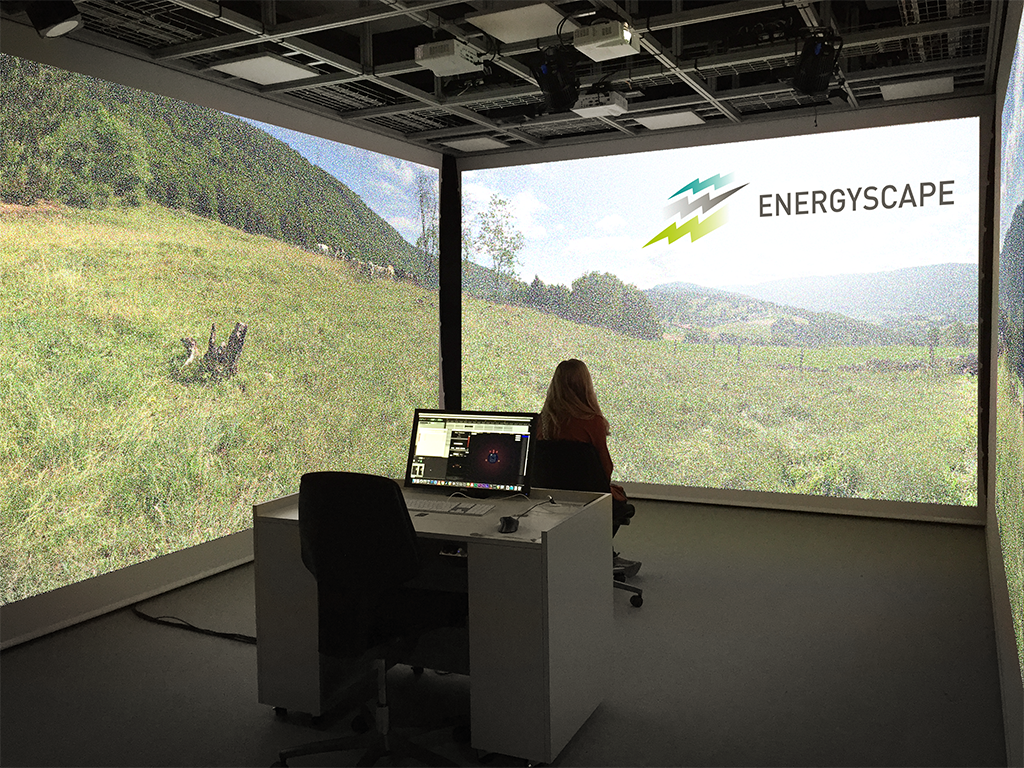ENERGYSCAPE
The project ENERGYSCAPE develops recommendations as basis for a landscape development through renewable energy infrastructures. Therefore we work closely with partners from environmental and energy research and practice.

Securing the energy turnaround requires the successful implementation of renewable energy infrastructures in our landscape. It is known that providing legal planning certainty increases confidence and social acceptance of planned changes. In Switzerland, concepts and sectoral plans allow coordinating spatially relevant tasks among institutions and exist for transmission lines and for wind energy (concept). Current planning practice is, however, usually done for one type of energy system in a site-specific manner: There is no Swiss-wide and cross-sectoral weighting of interests and a spatial coordination of tasks for a mix of renewable energy infrastructures and their prioritization in the various landscape types in Switzerland is missing. While we know that perceptual impacts caused by renewable energy infrastructures on a specific landscape type are one of the most important factors in explaining opposition or support for such infrastructures, knowledge about the judgment of landscape effects of a mix of such infrastructures in various landscape contexts is missing.
Goal
This project focuses, thus, on assessing public judgments of the landscape effects stimulated by a mix of renewable energy infrastructures in Swiss landscapes. The ultimate goal is the formulation of recommendations for a prioritization of such systems in the different Swiss landscapes, as a basis for landscape development through renewable energy infrastructures.
Methods
Using state-of-the-art virtual visual-acoustic simulations of the renewable energy infrastructure developments in the various landscapes, we will give participants the opportunity to develop judgments for or against potential changes. Physiological and cognitive measurements including a set of indicators to be considered for landscape quality assessment will be used to assess the preferences for the presented developments.
Recommendations will then be developed in an iterative process with the institutions and practice. Contributing herewith to enhanced implementation procedures will secure competiveness of Swiss energy providers. Furthermore, as an input to landscape development concepts, the results will help break down barriers and potential (often landscape-related) opposition in early planning phases.
Further information
Project data
Project team
Prof. Dr. Adrienne Grêt-Regamey, ETH Zürich, PLUS (PI)
Dr. Ulrike Wissen Hayek, ETH Zürich, PLUS (Project coordination)
Reto Spielhofer, ETH Zürich, PLUS
Laura Endres, ETH Zürich, PLUS
Prof. Dr. Tobias Luthe, ETH Zürich, PLUS
external pageProf. Dr. Felix Kienastcall_made, WSL, Landscape Dynamics
external pageDr. Marcel Hunzikercall_made, WSL, Social Sciences in Landscape Research
external pageDr. Boris Salakcall_made, WSL, Social Sciences in Landscape Research
Dr. Tyler Thrash, ETH Zürich, Chair of Cognitive Science
Dr. Victor Schinazi, ETH Zürich, Chair of Cognitive Science
external pageUrs Steigercall_made, steiger texte konzepte beratung
Partner
- external pageSwiss Federal Office of Energy (SFOE)call_made
- external pageFederal Office of the Environment (Foen)call_made
- external pageWSL, Research Program «Energy Change Impact»call_made
- external pageEKZcall_made
- external pageMeteotestcall_made
- external pageLaserdatacall_made
- external pageSwissgridcall_made
- external pageSBB AG, Infrastruktur Energiecall_made
- external pageSwissolarcall_made
- external pageSophie und Karl Binding Stiftungcall_made
Contracting authority
Swiss National Science Foundation (SNSF)
National Research Programme
external pageNRP 70 «Energy Turnaround»call_made
Duration
April 2017 – October 2019
Contakt
Dr. Ulrike Wissen Hayek ETH Zürich, PLUS
